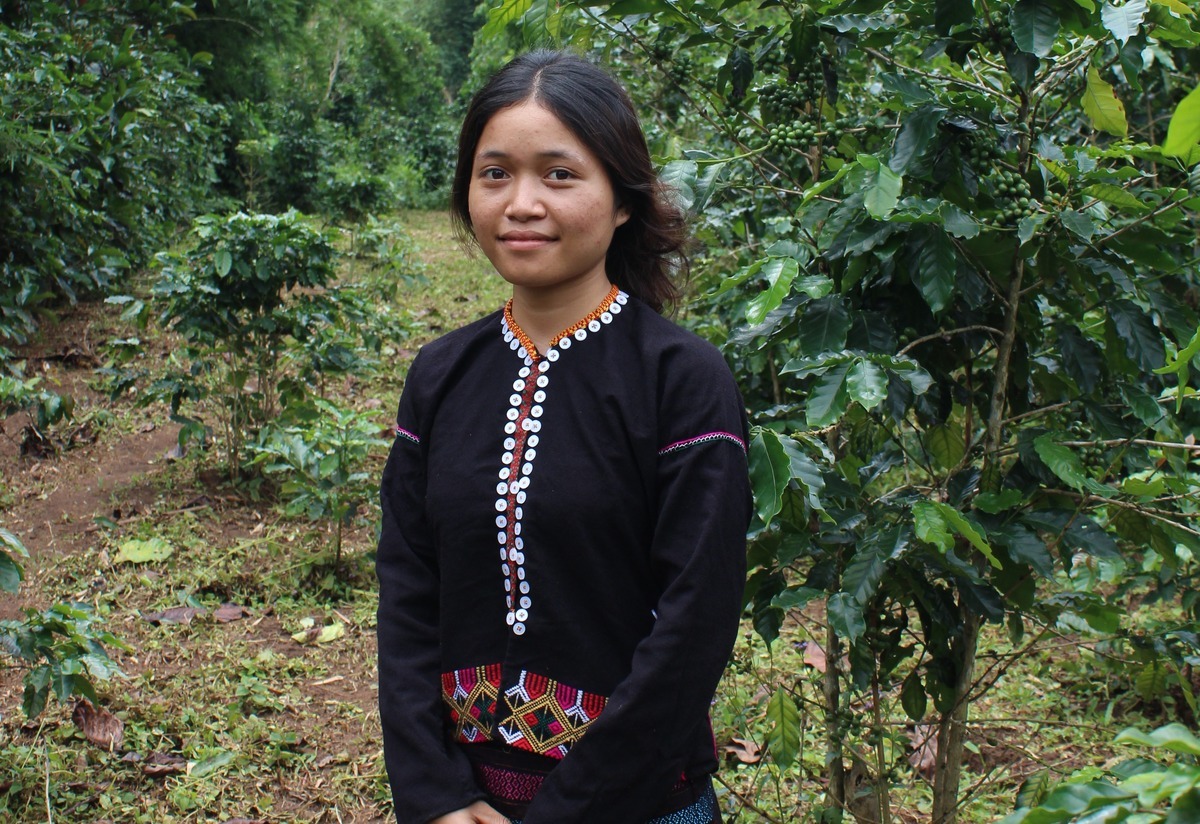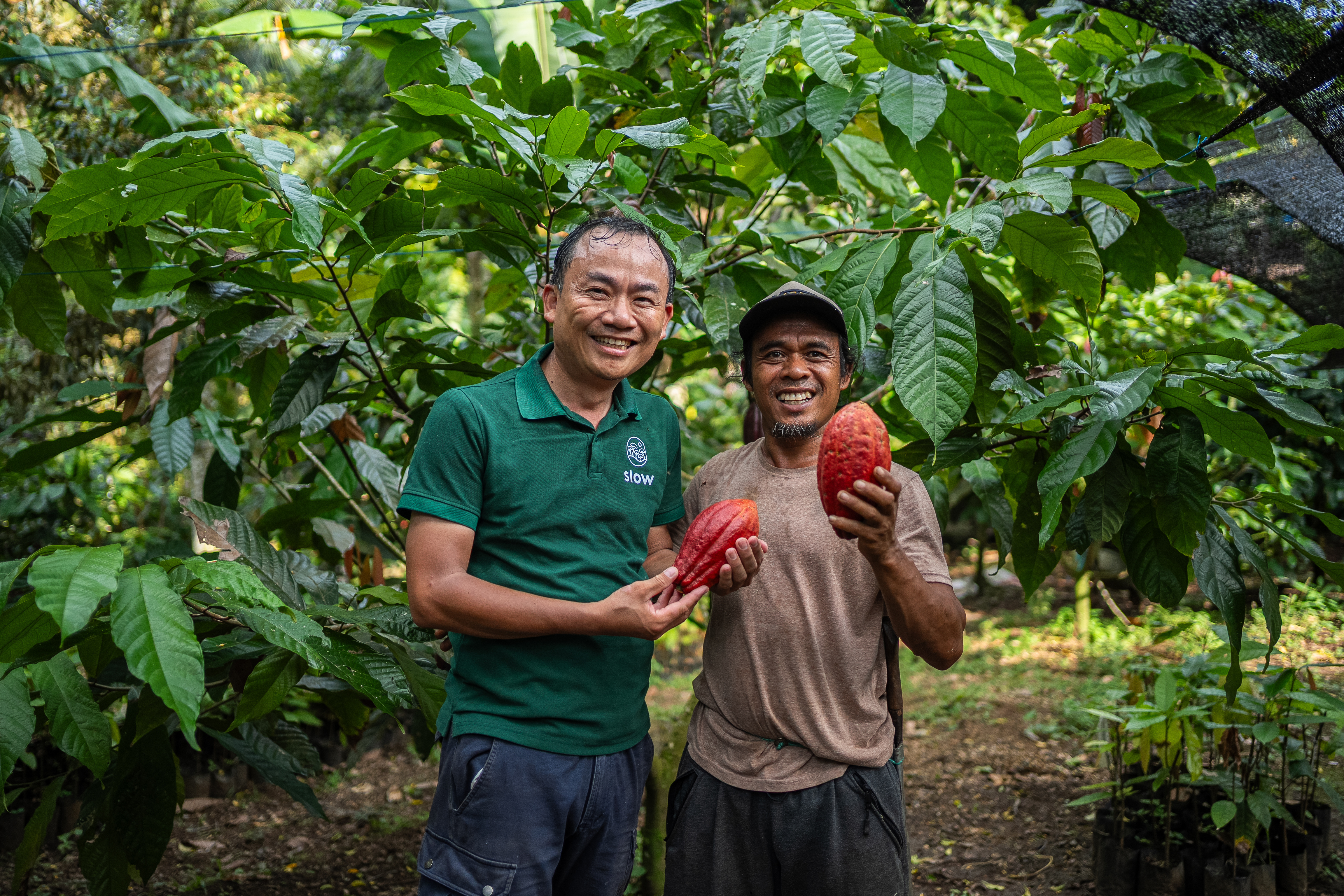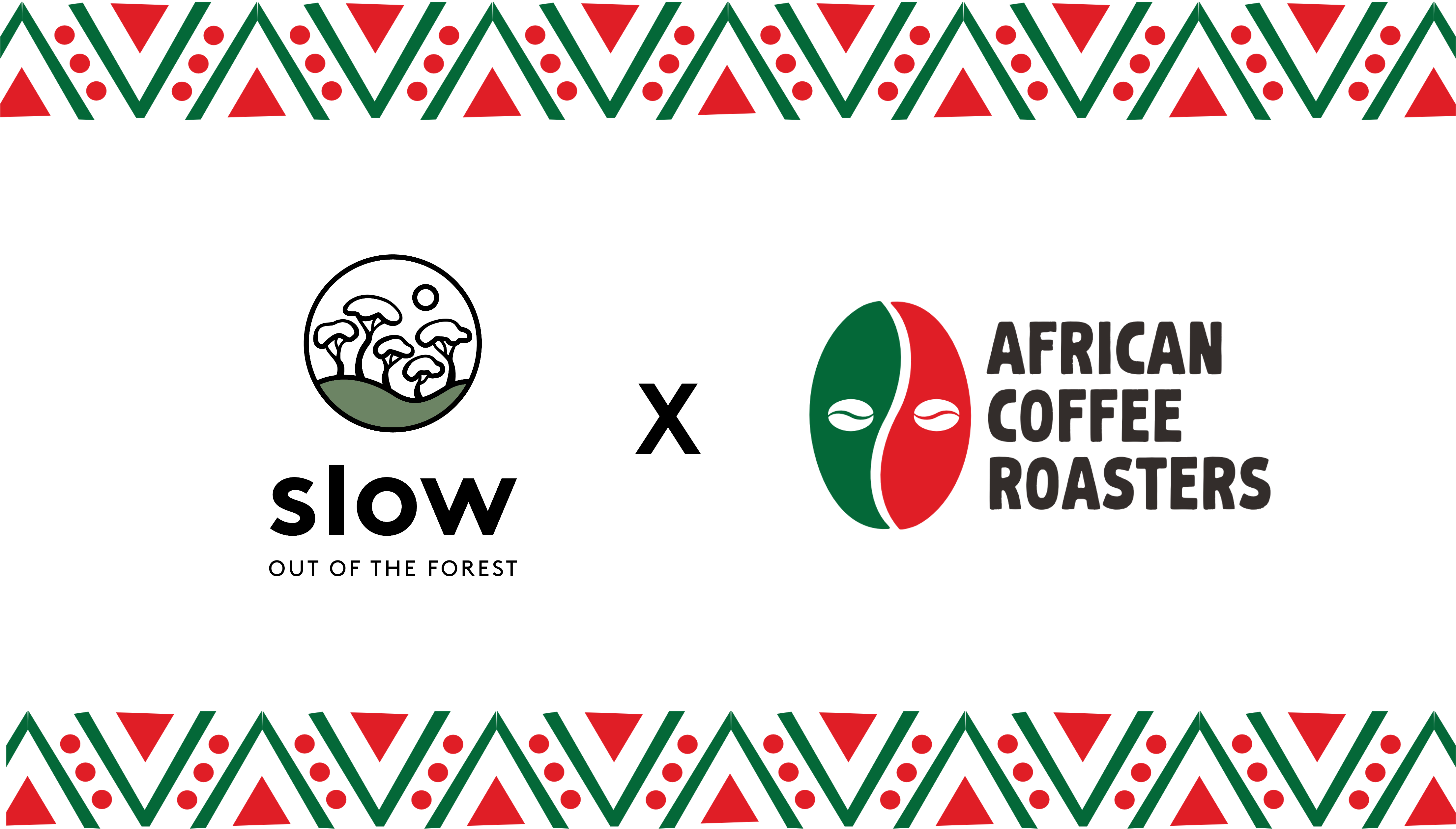What happens when coffee meets a forest?
Climate pressures are rising. In one Vietnamese coffee region, farmers are turning to agroforestry to secure yields, restore soils, and keep supply...

During the roasting, the bean expands to about 1,5 times the size of the green bean
Slow offers four different roasts for every hedonist: light, medium, dark, and very dark roast! Coffee comes in countless delicious flavors, which are being loved all over the world. The different shades of sweet and toasty are often recognizable, but coffee can also be citrusy, earthy, berry-like, salty, or herbal!
Did you know that one of the most important things that affect the taste and aroma of coffee is the way coffee beans are roasted? The intended use of coffee – for espresso, latte, or filter coffee – also depends on the roast profiles.
Coffee roasting is the process in which green coffee beans are turned into different shades of brown. During the roasting, the bean expands to about 1,5 times the size of the green bean. Thus the bean loses about 15-20% percent of its weight.
Roasting of small coffee amounts usually takes about 10 minutes in a drum-like roaster. Time is essential when roasting your coffee to a desired degree!
Slow coffee is made from high-quality beans, combined with individual roasting profiles! Our roasting profiles are created by the Danish roastmaster Michael de Renouard, one of the leading coffee roasting specialists in Scandinavia.
Coffee is generally classified into three different types of roasts: light, medium and dark.
Did you know that the type of roast you read from the coffee package depends on how long and at how high temperature the coffee beans are roasted?
During roasting, the coffee beans expand, pop, and take on a variety of brown colors. The cracking and popping of coffee beans, which means the release of water vapour and gases, has a decisive effect on the final taste of the coffee.
You can follow the basic rule: The darker the coffee beans are, the fuller and stronger the taste is.
Light, or first-stage coffee, is recognizable by its smooth and even tea-like texture. Coffee beans are roasted for only a few minutes and have an acidic aroma, which emphasizes the special characteristics of the beans. The light roast is also called cinnamon because of its color.
Look for notes of plum and red currant in the Slow Light roast!
Tip: Light roast is great for press and pan coffee.

The best coffee can be found by trying out different coffee roasts
Medium roast coffee is characterized by roundness, softness, and creaminess. The aroma is sweeter than in the light roast as the sugars in the coffee have already developed and some of the acidity has disappeared. This is medium style – balanced in both aroma and acidity.
Medium roast has also been noticed worldwide, and it is the most popular degree of roasting in the United States!
Look for notes of dark chocolate, raisins, and fruit toffee in a Slow Medium roast.
Tip: Medium roast is a safe choice for filtered coffee: it pleases most coffee drinkers.
Dark roast, as the name implies, is layered, velvet-like and quite heavy. Fully roasted coffee beans become oily, shiny, and dark in appearance. Coffee can taste even smoky, spicy, and bitter. It does not have an acidic tone anymore.
You can find shades of cocoa and liquorice in Slow Dark roast. The latest entrant, full-bodied extra dark roast, has a hint of dark chocolate in the flavour palette.
Tip: Use dark roast for French Café au lait, so the intensity of the coffee matches the sweetness of the milk.
Even among the general roast types, there is a lot of variation. Dark espresso can include French style, southern Italian or continental. Roasts meant for espresso use also differ from the roasts intended for filter coffee.
In the Slow Light espresso look for notes of cocoa and caramel, in Dark espresso you can find shades of cocoa and dark chocolate.
One more important thing! If the brewed coffee feels too light for your taste, you should try switching to a darker coffee roast. Increasing the amount of coffee will not make the coffee more rich or full-bodied.
The best coffee can be found by trying out different coffee roasts!
Sources: Kingston, Lani: How to Make Coffee. 2017. Nieminen Puustinen: Kahvi: Suuri suomalainen intohimo. 2014.

Climate pressures are rising. In one Vietnamese coffee region, farmers are turning to agroforestry to secure yields, restore soils, and keep supply...

Earth Day reminds us that change doesn't have to wait for sweeping policy or perfect systems. Often, it starts with something as simple—and as...

Big news from Slow. African Coffee Roasters is now part of the Slow family. And this isn’t just an acquisition—it’s a major step forward in how...